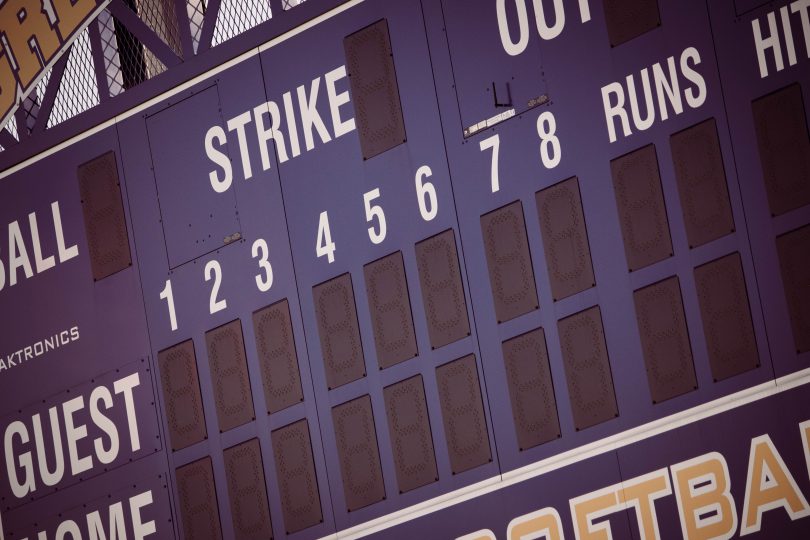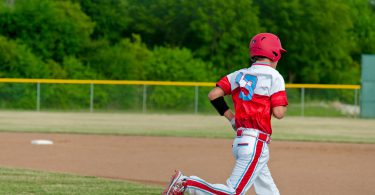We’ve talked about how you can figure out if you are strong enough to handle the physical side of college baseball, but how about the mental side? Here are some tips to help you prepare for the “mental game” at the college level.
Incorporate breathing exercises, meditation, and visualization into your training. Luckily, implementing the mental game into practice has become more mainstream, but make sure you are giving the mental game the time it deserves as you build out your routines. Do you have breathing techniques to slow things down and stay relaxed in big moments? Are you practicing meditation or other techniques that help you stay present and focused on the things you control? Are you using visualization techniques to get additional reps? All these things practices matter and will become an increasing focus as you move up in levels. Getting an early start can be a difference maker.
Evaluate the players at schools around you. If you have your sights set on going D1, find a D1 school near you and go to a game. Don’t just watch the baseball, imagine how you would fit in. Watch the player who is playing your position. Do you think you could play at that level in 3 years? Even more than watching skills, pay attention to the details. Look at the size of the players, their speed, and their ability to make quick decisions. Watch for how often the players make the routine play and how the hitters approach each at bat. One game is all it will take for you to see what you’re working towards as long as you pay close attention to what you see and hear.
Get a deeper understanding of your own game. Since you’re looking to play college baseball, it’s safe to say that you’re one of the better players on your team. Now it’s time to start improving the mental aspect of your game. This is especially true in leagues where individual players can dominate. When you get up to college, the skill level evens out dramatically. What separates average players, good players, and great players are the intangibles. By the time you get to college, you will need to be mentally prepared at all times and to learn something from every game you play. Start now. See if you can spot things in your game that your teammates or even your coaches missed. Is there a situation where the outfielder threw to the wrong base? Is there a spot where a hitter didn’t have a good plan at the plate? Always be learning from both successes and failures. When players get to college, it’s common for them to say that the game “speeds up.” This is how you slow it down. You have to be able to think about each situation individually, anticipate plays before they happen, and play the game one pitch at a time. For more practice in understanding the game and making the best decisions, check out our “Think the Game” column. With Think the Game, you’ll find hundreds of game scenarios with common mistakes and lessons to learn.
Be open to constructive criticism and willing to learn. It’s human nature to avoid things that will be hard or painful. That’s why many players, consciously or subconsciously, find ways to avoid hearing about their weaknesses. But if you are serious about playing at the next level, you need to get serious about seeking out honest and objective evaluation of your ability and adopt a growth mindset. Don’t be a player who protects their ego at the expense of their development, be a player who is committed to improvement and learns from prior mistakes or failures. At the college level, dealing with adversity is a given. It’s not a matter of if you’ll experience failure, but when and how you’ll deal with it. Start developing the mindset to attack adversity and focus on growth now. In college, you’ll also receive plenty of constructive criticism from brutally honest coaches. Set your ego aside and start being open to this type of feedback now. Coaches tell you where you are falling short and provide suggestions not to tear you down, but because they believe you can make the adjustments necessary to improve. Keep in mind that the players who are most successful in college aren’t necessarily the ones who show up as a finished product, it’s the players who complement their skills set with a growth mindset, hunger for information and learning, and who work the hardest who rise to the top. You can adopt that mentality now by setting aside your ego and relentlessly pursuing growth and improvement.
Build routines. Routines help you stay on track during the ups and downs of a season. They also help you move toward your goals. Start developing routines and behavior patterns that simplify decision-making and lead to success. For routines to be successful, they need to be well thought out and help you move towards your goals. Players who have put thought into their routines and behaviors are the ones that college coaches are looking for!







